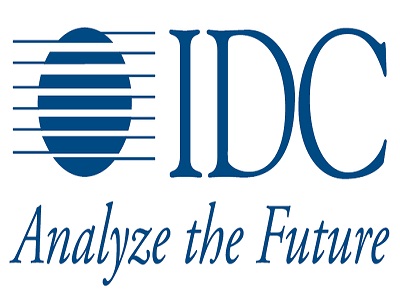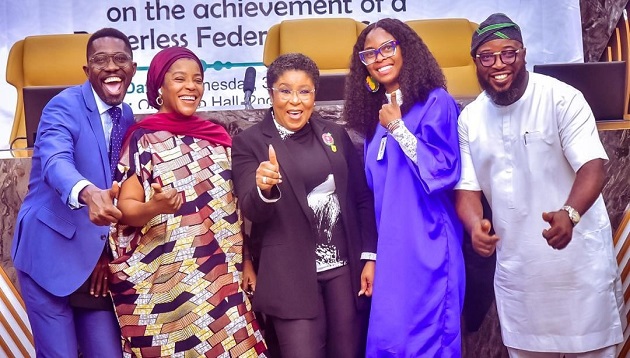E-Business
Dell Leads HP, Samsung on Worldwide PC Monitor Market Share

Dell Company stayed in the top position in third quarter 2013 with worldwide market share of 13.9% on shipments of 4.8 million units. The figures took the company ahead of other PC giants like HP and Samsung.
Meanwhile, total worldwide PC monitor shipments were more than 35.0 million units during the period under review, an increase of 4.5% compared to the previous quarter and 1.2 million units more than forecast, according to the International Data Corporation (IDC) Worldwide Quarterly PC Monitor Tracker.
Year-over-year growth was -8.6% in 3Q13, largely due to the ongoing decline in PC sales.
“Asia/Pacific (excluding Japan)(APeJ), Western Europe, and Central and Eastern Europe (CEE) outperformed the overall market in the third quarter and increased their regional market shares,” said Jennifer Song, research analyst, Worldwide Trackers at IDC. “China and India were the top growth drivers within APeJ, while Germany and Russia were the leading country markets in Europe.”
Looking ahead to the fourth quarter of 2013, IDC is forecasting a quarter-over-quarter decline of -3.2% in worldwide shipments to 33.9 million units.
However, IDC slightly raised its total shipment forecast for 2013 from 134.7 million units to 136.3 million units, which represents a decline of -8.5% compared to 2012. By 2017, worldwide shipments are expected to drop further to 109.6 million units, lower than the previous forecast of 110.8 million units, as the adoption of mobile devices at lower price points is expected to continue.
On Technology Highlights, the Tracker revealed that LED backlight technology adoption continues to increase with 84.9% market share in 3Q13.
This represents a year-over-year increase of 14.4 percentage points. Also, screen size of 21.x-inches wide has held the largest worldwide share for the last four quarters, with 21.4% share in 3Q13.
More so, aspect ratio of 16:9 continues to dominate with 77.5% market share, which is more than 4 times the second most widely used aspect ratio of 16:10; monitors with TV tuners are expected to grow to 7.7% market share by 2017, up from 5.7% share in 2013, led by LG and Samsung with a combined market share of 95% in this category, while touchscreen monitors are still a small segment of the total PC monitor market at 0.3% share, it is mostly in the U.S. at 48.6% share with Dell holding a 28.6% portion of the U.S. market.
However, the Vendor Highlights showed that Dell stayed in the top position in 3Q13 with worldwide market share of 13.9% on shipments of 4.8 million units.
While the U.S. declined by -13.0% from previous quarter, APeJ and CEE delivered the biggest gains for Dell with 4.4% and 46.0% quarter-over-quarter growth, respectively.
Although Samsung ranked second in unit shipments worldwide, it remains the top vendor in terms of total revenue with $1.09 billion in 3Q13, which represents 17.9% share in total market value.
On the other hand, HP remained the number three vendor, with the largest quarter-over-quarter increase of 35.8% in Japan; LG stayed in the number four position overall and it continues to be the number one PC monitor vendor in Latin America with 27.8% share.
This past quarter it also captured the top position in Central and Eastern Europe with 18.4% share and AOC rejoined the Top 5 vendor ranking in 3Q13 after slipping to number six in the previous quarter with a 11.6% increase in unit shipments from previous quarter. Every region except Japan saw positive gains, with China and India driving growth.
E-Business
Firm Identifies Global Scam Activity Linked to the Release of Avatar 3

The premiere of Avatar 3 has taken place in several countries and has been accompanied by a noticeable increase in online interest. Amid the heightened attention surrounding the release, Kaspersky experts identified an increase in cyber-scam campaigns that exploit the movie’s launch and users’ desire to watch it online. The fraudulent websites target users across multiple regions, indicating attempts by attackers to reach a global audience.

The scam operates as follows: cybercriminals create suspicious websites that offer online access to the Avatar 3 movie. Attackers place particular emphasis on localisation, publishing the sites in multiple languages to attract users from different countries. However, the translations are often poorly executed and contain grammatical errors and inconsistencies, which may serve as indicators of fraudulent activity.
When users attempt to start the video, they are presented with a fake media player and prompted to register in order to obtain “full” or “unlimited” access to the film. As part of the registration process, users are asked to provide personal information, including an email address and mobile phone number.
At later stages, scammers may request additional data, including payment details, under the guise of activating a “free trial.” This creates risks of credential compromise, particularly if users reuse passwords across multiple services, and may also lead to financial losses.
“Cybercriminals consistently exploit major movie premieres to capture users’ attention and increase the effectiveness of their schemes. We advise accessing films only through official platforms and exercising caution when encountering websites that request personal or payment information. It is also important to use reliable security solutions to protect all devices, including mobiles,” comments Olga Altukhova, Senior web content analyst at Kaspersky.
E-Business
Galaxy Backbone Celebrates the Federal Government’s Paperless Civil Service Milestone

Galaxy Backbone (GBB) aligns with and celebrates the successful announcement by the Office of the Head of the Civil Service of the Federation on the achievement of a Paperless Civil Service, a significant milestone in Nigeria’s public sector reform and digital transformation agenda.

The milestone was formally highlighted at a press briefing led by the Head of the Civil Service of the Federation, Mrs. Didi Esther Walson-Jack, who commended Galaxy Backbone for its sustained support and contribution throughout the implementation of the programme.
GBB has played a critical role in enabling this transition by providing secure, scalable, and shared digital infrastructure that supports the digitisation of government processes across Ministries, Departments and Agencies (MDAs). Through the 1Government Cloud, MDAs have been empowered to migrate from paper-based workflows to digital platforms, improving efficiency, collaboration, data security, and service delivery across the Federal Civil Service.
In addition, GovMail, GBB’s secure government email platform, has strengthened official communication, enhanced records management, and reinforced cybersecurity standards—key pillars in sustaining a paperless operating environment.
Galaxy Backbone acknowledges the collective efforts of the Office of the Head of the Civil Service of the Federation, Permanent Secretaries, Directors of ICT, consultants, partners, and dedicated public servants whose commitment and collaboration ensured the smooth delivery of this initiative.
The Managing Director/Chief Executive Officer of Galaxy Backbone, Prof. Ibrahim Adeyanju, was represented at the press briefing by Akintayo Bamisaye, Acting Group Head, Research, Digital Innovation and Skills Department (RDIS).
GBB describes the achievement as a strong close to 2025 and reaffirms its commitment to supporting the Federal Government in building a modern, efficient, and digitally enabled public service.
E-Business
Jumia CEO says Black Friday Signals Nigeria’s E-Commerce Maturity

At the close of 2025, Temidayo Ojo, the CEO of Jumia Nigeria, reflected on a year-end shopping season that points to the growing maturity of the country’s e-commerce market. “Black Friday is no longer a single, short-lived spike in activity,” he said.

“It has become a familiar, anticipated moment in the retail calendar, where consumers shop deliberately and with confidence.”
Preliminary KPIs for the two months ended November 30, 2025, show strong year-on-year growth in both orders and Gross Merchandise Value (GMV), with GMV growth outpacing order growth. This indicates that customers are placing fuller, more considered baskets rather than shopping in fragmented transactions. Nigeria ranked among Jumia Group’s better-performing markets, with engagement remaining steady throughout the Black Friday period rather than spiking briefly and tapering off.
A key factor behind this performance is the growing familiarity of consumers with online shopping. Customers are increasingly leveraging platform features such as saved carts, brand stores, and price comparison tools to plan purchases in advance. This trend suggests that digital commerce is becoming embedded in everyday habits rather than being viewed as a one-off event.
Ojo also highlighted the role of Jumia’s JForce network in connecting digital commerce to local communities. “Our agents are critical to ensuring that customers across Nigeria, including secondary cities and smaller communities, have access to variety, consistent pricing, and reliable delivery,” he said. “During peak periods like Black Friday, JForce agents can respond faster, serve more customers efficiently, and build stronger local relationships. This isn’t just a distribution channel—it’s a pathway to sustainable income and inclusion.”
Reflecting on the overall performance, the CEO concluded: “What we’re seeing this year-end is steady engagement across categories, stronger consumer confidence, and partners like our JForce agents benefiting from increased activity.
“It confirms that Nigeria’s e-commerce ecosystem is maturing, growing in a more structured and resilient way. As the December Holiday Sale continues, we expect these patterns of familiarity, trust, and participation to sustain momentum and drive both commerce and community impact across the country.”

 News1 day ago
News1 day agoCourt Sends Faleti, Ex-Lagos Director to Jail for Stealing ₦48.9m from Access Bank

 E-Financial1 day ago
E-Financial1 day agoRemita Powers over ₦100 Trillion in Payments as Nigeria’s Digital Economy Expands

 News2 days ago
News2 days ago974 Nigerians Face Imminent Deportation from Canada Amid Enforcement Surge

 General News2 days ago
General News2 days agoHouse of Reps Releases Certified Copies of Tax Reform Acts amid Gazette Discrepancy Claims

 E-Financial1 day ago
E-Financial1 day agoWhy 2026 Must Be the Year Nigeria’s Economy Works for All

 E-Financial1 day ago
E-Financial1 day agoFlutterwave Acquires Nigeria’s Mono in $25m-$40m All-Stock Deal

 E-Financial1 day ago
E-Financial1 day ago2026: SEC to Review Rules to Incentivise SME Listings

 General News1 day ago
General News1 day agoNigeria Targets Satellite-to-Mobile Services in Draft Spectrum Roadmap



























